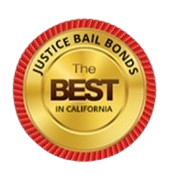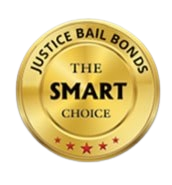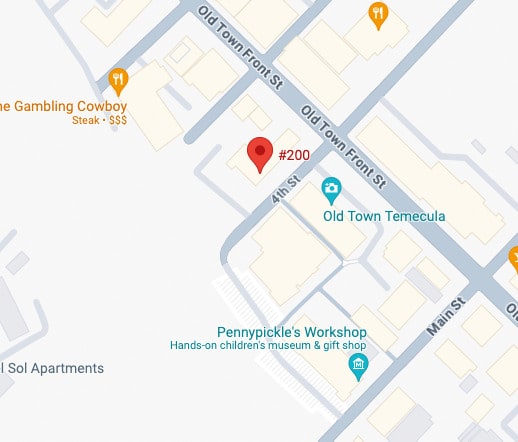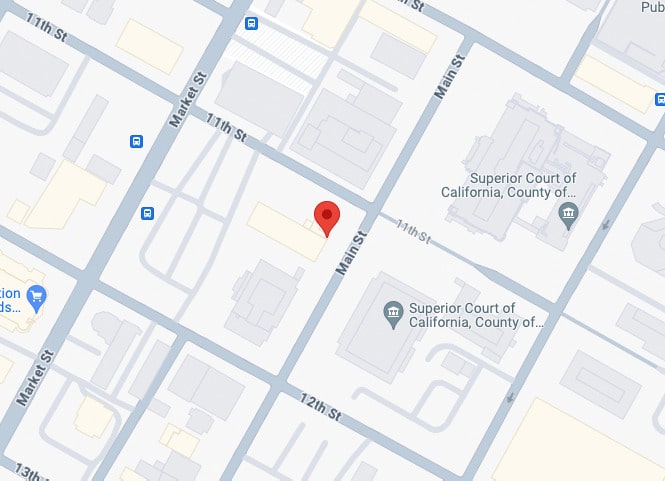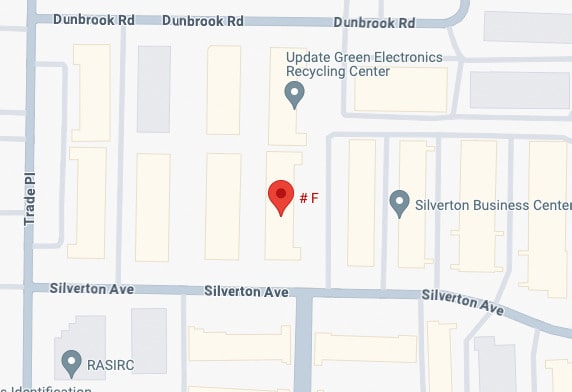Facing an arrest is one of the most traumatizing experiences you can have in your life. The situation is even worse if you face felony charges, like felony possession of a firearm by a felon under PC 29800. If you are a repeat felony offender, the judge can grant or deny your release on bail, depending on the facts of your case. However, all is not lost. All you need is an experienced attorney and bail bondsman by your side. If you or your loved one has been arrested in Temecula and requires prompt release on bail, contact Justice Bail Bonds. We have experienced bail bondsmen located strategically close to the main detention centers.
Understanding Bail
Typically, bail is the money you or your surety must post with the court to secure your release from jail while waiting for trial. A surety is a person liable for your appearance in court. The bail is a commitment that you will appear in court for all scheduled hearings. The court orders you to post bail to ensure you do not escape before the trial.
A county bail schedule or table usually guides detention officers or judges in determining the bail amount you are to post. The judge could also deviate from the schedule based on certain factors. Some of the factors include:
- Whether you are a risk to public safety
- Your criminal history
- The severity of your crime
You will forfeit bail if you fail to appear in court. The judge will then issue a warrant for your arrest.
Bail Bonds
Bail bonds could be a solution for you when you find yourself in a situation where you cannot afford to pay for your bail in cash. A bondsman will charge you a fee to post bail on your behalf. A bondsman could charge you 10% of the total bail amount. For example, the bondsman would charge you $2000 if the cost of bail is $20,000. The ten percent could seem like a lot of money. Still, it is more affordable than paying the whole bail amount, particularly on extremely high bail amounts for certain serious felonies.
Sometimes, the bondsman can lower the bail bond premium to less than 10%. However, the law limits the highest rate at which bail companies can charge to 10%. Despite the costs, a bondsman is always a lifesaver for individuals who cannot afford to pay bail in cash. Those charged with possessing a firearm and need help navigating the bail process can seek the services of a bondsman.
The Purpose Of The Bail Hearing
The bail hearing is an important part of the bail process. It is the initial court appearance, also known as pre-trial detention or arraignment, where the court sets the bail amount. The judge could also release you on your recognizance (OR) with a promise to appear in court. At the bail hearing, the judge can also deny you bail.
You could be released without bail after arrest if your charges are infractions or misdemeanor offenses like a DUI with no accident injuries. Serious felony charges, like murder and assault with a deadly weapon, could mean a danger to public safety. They will, therefore, have no OR as an option. However, if you are arrested for felony crimes, you can still secure your release on bail. You could post a bail bond or pay the bail amount indicated in the bail schedule. However, The judge could ask for a higher amount than the schedule suggests.
Factors That Could Influence The Amount Of Bail
The bail bond process begins when you appear in court for the judge to determine bail. The following factors will come into play when determining the amount of bail:
- Your mental health
- Your potential danger to public safety
- Financial resources
- Community ties
- Whether you are a flight risk
- Your criminal history
- The severity of the crime
The bail schedule could offer guidance for all criminal charges. However, the judge will have a say in the specific amount. You could, however, be put under house arrest even if you are released on bail. The judge could also bar you from owning any deadly weapons or put you under electronic monitoring. A competent criminal defense attorney and a good bondsman can help you navigate and understand the above bail conditions.
Felon In Possession Of A Firearm
According to Penal Code 29800, the offense of felon in possession of a firearm is the act of a convicted felon receiving, buying, owning, or possessing a firearm. It is a crime for you to possess or have control over any firearm if you have been convicted of a felony offense.
The following individuals could be guilty of a felony under Penal Code 29800:
- Any offender with an outstanding warrant for any crime listed under PC 29800. It must be evident that the defendant understands the outstanding warrant yet receives, purchases, owns, or is in possession or control of any firearm.
- An offender who has been charged with a felony under the U.S. laws, California laws, or any other country, government, state, or of a crime enlisted in subdivision (a) (b) or (d) of PC 23515. Additionally, any individual addicted to any narcotic drug who owns, receives, purchases, or has in possession or control of any firearm.
- An offender with two or more convictions for violating PC 417(a)(2) and receives, purchases, owns, or has in possession or control of any firearm.
The prosecutor must prove the following elements for you to face felony possession of a firearm by a felon charges under PC 29800:
Possession Of A Firearm
The prosecutor must provide evidence showing you had actual or constructive firearm possession. Actual possession involves having immediate physical control over a firearm, especially holding it in your hand. Constructive possession involves having the capacity to exercise control over the firearm, even if it is not in your presence.
Knowledge Of Possession
The prosecutor must prove that you had knowledge that you possessed a firearm. You could be deemed to know if you intentionally secured or controlled the firearm or if you were aware of its presence and could exercise control over it.
Qualifications Of A Firearm
The firearm you are being accused of should meet California's definition of a firearm. Firearms can include assault weapons, shotguns, rifles, and handguns.
Prior Felony Conviction
The prosecutor must prove that you have been convicted of a felony offense before. Felony offenses can include burglary, robbery, murder, drug crimes, or any other felony crime under California law.
However, some limited exceptions and defenses exist for this charge. For example, you could be exempt if your felony conviction was reduced to a misdemeanor or expunged. Drug addicts undergoing certain rehabilitative programs could also be exempt. You should consult a criminal defense attorney if you face felony possession of a firearm charge.
Penalties For Felony Possession Of A Firearm By A Felon Charges
You could face penalties under PC 29800, depending on the facts of the case and your criminal history. If it is your first offense, you could face the following penalties:
- A fine that does not exceed $10,000
- A jail term of up to 16 months, two years, or three years in a state prison
A second or subsequent offense could attract the following penalties:
- A fine that does not exceed $10,000
- A jail term of up to 16 months, two years, three years, or more in a state prison
You could also face enhanced penalties in the following situations:
- If you possess certain types of firearms, like grenades and assault weapons
- If you have a prior violent felony conviction
You need an experienced bondsman and attorney who understands felons in possession of a firearm offense. The bail bond procedure for possessing a firearm on a felon charge could be complicated, thus requiring an expert. Typically, the standard bail for firearm possession by a felon is $35,000 to $50,000. An experienced bail bondsman can help you post bail.
A criminal defense attorney could also help you create a defense strategy against possession of a firearm by a felon. Some of the defenses you could present include:
You Are A Victim Of Police Entrapment
You could present entrapment as a defense if you can prove that the police officers induced or coerced you into possessing a firearm. Entrapment occurs when the police persuade you to commit an offense you would not have otherwise committed. The judge could drop or reduce your charges if he/she establishes that you fell victim to entrapment.
Constitutional Challenge
You could challenge the constitutionality of your arrest by alleging that it violates your Second Amendment right to possess firearms. Unfortunately, judges have always upheld laws limiting the possession of firearms by felons as constitutional.
Invalid Prior Felony Conviction
This is a popular defense. You could allege that your previous conviction, which serves as the basis for the possession charge, is invalid or does not meet the requirements for a felony. This defense could be permissible if your attorney thoroughly analyzes your previous criminal record.
Violation Of Miranda Rights
Sometimes, you could make self-incriminating utterances during your arrest or police questioning before you learn your Miranda rights. Your right to remain silent is one of the Miranda rights that law enforcement officers should inform you about. If the police did not read your Miranda rights to you, you can use this omission as a defense to fight your charges.
You Are A Victim Of Illegal Search And Seizure
You could fight the legality of the search that led to the discovery of the firearm. If the police search without a valid warrant, any evidence gathered can be dismissed in court. Additionally, evidence gathered without probable cause could be deemed inadmissible in court.
Justifiable Possession
You could claim that you possessed a firearm only as an emergency measure to protect yourself against criminals, secure it, or deliver it to the police.
Lack Of Knowledge Or Awareness
You could claim that you did not know of the firearm's presence. With the help of an attorney, you can also point out that you were unaware that the firearm was in your possession. You could also assert that you only briefly possessed the firearm and that it was not within your control. This defense could be valid if the firearm was in a shared home or car of someone with legal possession.
Other Types Of Felony Possession Of A Firearm By A Felon Charges
All convictions of illegal possession of a firearm by a felon are considered felony charges. These convictions attract severe penalties. Several crimes are also related to felon in possession of a firearm charges under California law, including:
Carrying A Loaded Firearm Under Penal Code 25850
It is a crime under Penal Code 25850 to carry a loaded firearm in a public place. You could face charges under this law if you possess a firearm that is loaded and readily accessible to use. This law applies whether the firearm is concealed or carried openly in any public place. Public places could include public buildings, parks, sidewalks, or streets. A loaded firearm has an attached magazine, ammunition in the chamber, or both. However, certain exceptions exist for the following individuals:
- People engaged in legal activities like hunting or target shooting at authorized locations.
- People with valid concealed firearm licenses
- Police officers
- Members of the United States military
- An agent of any federal law enforcement agency
If the prosecutor accuses you of carrying or possessing a loaded firearm in public, he/she must prove the following elements:
- You carried a loaded firearm in your vehicle or on your person.
- You were aware that you were carrying a firearm.
- You did so in a public place or on a public street in an incorporated city or area where it was unlawful to discharge a firearm.
If you violate Penal Code 25850, you could face misdemeanor charges. In some situations, you could face felony charges, like when you have a prior felony conviction or are prohibited under federal or state law.
Misdemeanor charges could attract the following penalties:
- A fine that does not exceed $1,000
- A jail term that does not exceed one year in a county jail
If certain aggravating factors are present, a violation of PC 25850 could be charged as a wobbler or a straight felony. Additionally, you must serve at least three months in a county jail if you have certain prior convictions.
A violation of PC 25850 could amount to a wobbler crime if you were previously convicted of a certain misdemeanor or drug offense or are not a registered firearm owner. The judge could charge a wobbler crime as a misdemeanor or a felony. A misdemeanor could attract the above penalties. A felony could attract a fine that does not exceed $1000 and a jail term that does not exceed three years in a county jail.
A violation of PC 25850 could amount to a straight felony if:
- You were legally barred from having ownership or possession of the firearm
- You did not legally possess the gun
- You belong to a criminal street gang
- You stole the gun
- You have a prior felony or firearm conviction
A straight felony could attract the following penalties:
- A fine that does not exceed $10,000
- A jail term that does not exceed three years in a county jail
A conviction under this law could also negatively influence your gun rights. Under California law, convicted felons are not allowed to acquire or possess a firearm.
Firearm Possession After A Misdemeanor Conviction – Penal Code 29805
Penal Code 29805 governs the illegal possession of a firearm after being convicted of certain misdemeanors. According to this law, people convicted of certain misdemeanor crimes cannot possess firearms for a certain period. Some of the misdemeanors include:
- Stalking
- Criminal threats
- Domestic violence
- Battery
- Assault
- Possession of a deadly weapon with intent to assault
- Brandishing a weapon or firearm
- Shooting at an unoccupied vehicle or building
- Domestic battery
If the prosecutor accuses you of violating Penal Code 29805, he/she must prove the following elements:
- You committed a specific misdemeanor listed under this law
- You had an outstanding warrant for a listed misdemeanor
- You purchased, possessed, received, or owned a firearm
- You did so within ten years from the date of your conviction
If you have been convicted of the above misdemeanors, you could be barred from possessing a firearm for ten years from the date of conviction. The ten-year period applies to long guns and handguns. Penal Code 29805 applies even if you were convicted in another state or if your rights have been restored in the jurisdiction of the conviction.
Judges often charge a violation of Penal Code 29805 as a wobbler crime. In this case, you can face felony or misdemeanor charges. A misdemeanor charge could attract a jail term that does not exceed one in a county jail.
On the other hand, a felony charge could attract a one-year jail term in a county jail. You could also face a jail term that does not exceed three years in a state prison.
Find a Reputable Bail Bondsman Near Me
Following an arrest for felony possession of a firearm by a felon PC 29800, your first step should be to contact a reliable bail bondsman. Justice Bail Bonds provides timely bail bond services for all types of crimes in Temecula. Whether you face misdemeanor or felony charges, our bail bondsmen can help. Contact us at 714-541-1155 to speak to one of our bondsmen.





